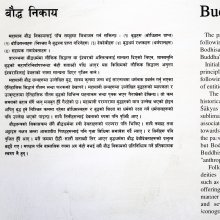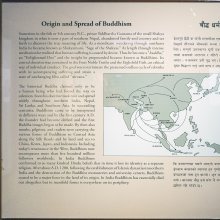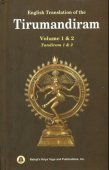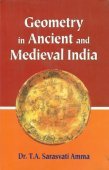Siddhanta, Siddhānta, Siddha-anta, Siddhamta: 25 definitions
Introduction:
Siddhanta means something in Buddhism, Pali, Hinduism, Sanskrit, Jainism, Prakrit, the history of ancient India, Marathi. If you want to know the exact meaning, history, etymology or English translation of this term then check out the descriptions on this page. Add your comment or reference to a book if you want to contribute to this summary article.
Siddhanta has 24 English definitions available.
Images (photo gallery)
Languages of India and abroad
Sanskrit dictionary
[Deutsch Wörterbuch]
Source: Cologne Digital Sanskrit Dictionaries: Böhtlingk and Roth Grosses Petersburger WörterbuchSiddhānta (सिद्धान्त):—(siddha + anta) m.
1) das letzte Ziel, Vorhaben: sama adj. gleiche Ziele verfolgend [Aśvalāyana’s Śrautasūtrāni 12, 8, 15.] —
2) ein endgiltiger, feststehender, begründeter Satz, Lehre, Doctrin (rāddhānta, kṛtānta, samaya, tantra) [Amarakoṣa 1, 1, 4, 13. 3, 4, 14, 67. 24, 151. 25, 187.] [Trikāṇḍaśeṣa 1, 1, 115.] [Hemacandra’s Abhidhānacintāmaṇi 242.] [Halāyudha 1, 10. 5, 83. fg.] prāmāṇikatvenābhyupagato rthaḥ siddhāntaḥ [SARVADARŚANAS. 113, 18.] yaḥ parīkṣakairbahuvidhaṃ parīkṣya hetubhiśca sādhayitvā sthāpyate nirṇayaḥ sa siddhāntaḥ [CARAKA 3, 8.] tantrādhikaraṇābhyupagamasaṃsthitiḥ siddhāntaḥ [NYĀYAS. 1, 26.] er ist vierfach: sarvatantra, pratitantra, adhikaraṇa, abhyupagama [27. fgg.] [CARAKA a. a. O.] [Weber’s Indische Studien 2, 295.] [Mahābhārata 1, 2887.] [Kapila 1, 21.] [SĀṂKHYAK. 71.] [Nīlakaṇṭha 49. 180.] Einl. zu [Jaimini] [HALL] in der Einl. zu [VĀSAVAD. 10.] Comm. zu [VĀSAVAD. S. 18.] [Spr. (II) 5231.] [PAÑCAR. 4, 2, 16.] [Sāhityadarpana 31, 10.] [Kullūka] zu [Manu’s Gesetzbuch 8, 209.] [Oxforder Handschriften 17] , a, 2. 23, b, N. 5. 86, b, 47. 160, b, 7. 227, a, [No. 557.] [SARVADARŚANAS. 46, 1.] pārameśvara [Prabodhacandrodaja 57, 14.] vedānta [54, 10.] svaśāstra [Suśruta 1, 50, 16.] śālākya [2, 370, 14.] buddha [Lassen’s Anthologie (III) 90, 1.] digambara [Prabodhacandrodaja 46, 5.] prabhākaragurūṇām [SARVADARŚANAS. 135, 2.] bhaṭṭācāryāṇām [134, 22.] raseśvara [98, 21. fg.] vyavahāra, sva Comm. zu [Kapila 1, 106.] a [Suśruta 1, 149, 14.] —
3) im System der Karmamīmāṃsā Conclusion und Refutation des erhobenen Einwandes (das 4te Glied im Adhikaraṇa) [SARVADARŚANAS. 122, 21. 124, 6.] —
4) ein astronomisches Lehrbuch [Varāhamihira’s Bṛhajjātaka S. 2, S. 4, Z. 2.] [GAṆITĀDHY.] [KĀLAM. 6.] [Weber’s Verzeichniss No. 862. 939.] [WEBER, Jyotiṣa 98.] [Journ. of the Am. Or. S. 6, 418. fgg.] [KERN] in der Vorrede zu [Varāhamihira’s Bṛhajjātaka S. 24. fg.] —
5) Bez. einer Klasse von Werken bei den Beddhisten [WASSILJEW 60. 260.] bei den Jaina [WILSON, Sel. Works 1, 280. fg.] Titel eines best. JainaWerkes [SARVADARŚANAS. 41, 4.] bei den Tāntrika steht dem Ansehen nach siddhānta neutr. zwischen vāma und kaula [Oxforder Handschriften 91,a,18.] — Vgl. apa, kandarpa, kārttika, jñāta, jyotiḥ, nyāya, brahma, brahmasphuṭa, bhakti, mahā, mahādeva, mādhva, vasiṣṭha, vākya, vaiyākaraṇa, vyāsa, śāstra, śiva, siddha, soma u. s. w.
Sanskrit, also spelled संस्कृतम् (saṃskṛtam), is an ancient language of India commonly seen as the grandmother of the Indo-European language family (even English!). Closely allied with Prakrit and Pali, Sanskrit is more exhaustive in both grammar and terms and has the most extensive collection of literature in the world, greatly surpassing its sister-languages Greek and Latin.
See also (Relevant definitions)
Partial matches: Siddha, Anta.
Starts with (+140): Siddhanta Nidanam, Siddhanta Shiksha, Siddhanta-darshana, Siddhanta-nishtha, Siddhanta-vakya, Siddhantabhashya, Siddhantabhedalavasamgraha, Siddhantabindu, Siddhantabinduvyakhya, Siddhantacandrika, Siddhantacandrikakhandana, Siddhantacandrikatika, Siddhantacandrodaya, Siddhantacara, Siddhantachandrodaya, Siddhantacikitsa, Siddhantacintamani, Siddhantacintaratnasamgraha, Siddhantacudamani, Siddhantadarpana.
Ends with (+135): Abhyupagamasiddhanta, Adeshasiddhamta, Adhikaranasiddhanta, Adityapratapasiddhanta, Advaitasiddhanta, Ahobalanathasiddhanta, Anusiddhamta, Apasiddhanta, Aryabhatasiddhanta, Aryasiddhanta, Ashaucasiddhanta, Asiddhanta, Avasiddhamta, Badarayanasiddhamta, Balamallavenasiddhanta, Bayala-siddhanta, Bhaktisiddhanta, Bhavapravanata-siddhanta, Bhrigusiddhanta, Brahmasiddhanta.
Full-text (+1219): Saiddhantika, Romakasiddhanta, Shivaprakasha, Tiruvuntiyar, Sarvatantra, Mulapulishasiddhanta, Abhyupagamasiddhanta, Siddhanta Shiksha, Siddhantin, Adhikaranasiddhanta, Raddhanta, Nencuvidututu, Sankalpanirakarana, Unmai-nerivilakkam, Shivajnanasiddhi, Tirupavirupathu, Vinavenba, Tiruvarudpayan, Kodikkavi, Tirukkalirrupadiyar.
Relevant text
Search found 116 books and stories containing Siddhanta, Siddhānta, Siddha-anta, Siddha-nta, Siddhā-nta, Siddhamta, Siddhaṃta, Siddhāṃta; (plurals include: Siddhantas, Siddhāntas, antas, ntas, Siddhamtas, Siddhaṃtas, Siddhāṃtas). You can also click to the full overview containing English textual excerpts. Below are direct links for the most relevant articles:
Karmic Astrology—a Study (by Sunita Anant Chavan)
Part 2.2.6 - Gaṇita of the Siddhānta Period < [Chapter 2 - Jyotiḥśāstra and the Concept of Karman]
Part 2.2.5 - Peculiarities of Gaṇita (calculations) < [Chapter 2 - Jyotiḥśāstra and the Concept of Karman]
Part 5.1 - Ideology in the Varāha Period < [Chapter 3 - Development of Jyotiḥśāstra and Karman in the Literature]
Philosophy of Charaka-samhita (by Asokan. G)
Dialectical terms (10): Tenet (siddhānta) < [Chapter 7 - Logic and Dialectical Speculations]
Dialectical terms [in Charaka philosophy] < [Chapter 7 - Logic and Dialectical Speculations]
The theory of three faults (tridoṣa-siddhānta) < [Chapter 3 - Fundamental Theories]
Brahma Sutras (Ramanuja) (by George Thibaut)
The Great Siddhanta. < [First Adhyaya, First Pada]
The Small Siddhanta < [First Adhyaya, First Pada]
The theory of Nescience cannot be proved < [First Adhyaya, First Pada]
Nyaya-Vaisheshika categories (Study) (by Diptimani Goswami)
Categories in the Nyāya system < [Chapter 2 - Salient features of Nyāya-Vaiśeṣika System]
The Nature of Substance (Dravya) < [Chapter 3 - Dravya (Substance)]
Date of Annaṃbhaṭṭa < [Chapter 1 - Introduction]
A History of Indian Philosophy Volume 5 (by Surendranath Dasgupta)
Part 1 - History and Literature of Vīra-śaivism < [Chapter XXXV - Vīra-śaivism]
Part 3 - Māṇikka-vāchakar and Śaiva Siddhānta < [Chapter XXXVIII - Śaiva Philosophy in some of the Important texts]
Part 1 - The Literature and History of Southern Śaivism < [Chapter XXXIV - Literature of Southern Śaivism]
Significance of the Moon in Ancient Civilizations (by Radhakrishnan. P)
3. Coverage of the Study < [Chapter 1 - Preface to Research Work]
4. First Airport Built in Iraq < [Chapter 10 - Analysis of the Data]
8. Contributions of Varahamihira < [Chapter 2 - A Sceintific Outlook on Astrology]
Related products
(+3 more products available)







